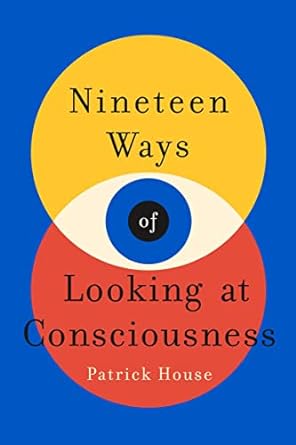Jerry Coyne is not happy with the evolution of an organization that at least used to pretend to have principles: Head of the ACLU makes a mockery of free speech at a Princeton orientation event designed to promote free speech. Jerry quotes an article from National Review (which means we don't have to use up a gifted link):
On August 29, Anthony Romero, executive director of the American Civil Liberties Union, spoke alongside Princeton University president Christopher Eisgruber at a mandatory freshman-orientation event ostensibly meant to highlight the university’s commitment to freedom of speech and academic freedom. More than 1,000 Princeton freshmen were required to attend this event as a part of their regular sequence of orientation activities; I was there as an undergraduate academic adviser for freshmen and out of my own personal curiosity.
In a word, the event’s content was an embarrassment. A new class of Princeton students were subject to an hour-long, highly ideological exhortation by Romero, who repeatedly urged them to embrace progressive ideas and badly misrepresented the importance of free speech by rooting its value in its ability to advance socially progressive causes.
Today’s enemies of free speech and civil liberties, Romero told Princeton freshmen, are those who deny the “right to gender-affirming health care,” those “attacking critical race theory,” and proponents of Florida’s so-called Don’t Say Gay law. According to Romero, these are the real “freedom-of-expression issues” of our day — the work of right-wing villains who want our society to “go back to the medieval period.”
Jerry adds on his own: "As for the ACLU, I can’t speak frankly about what I think about it given that this is a family-friendly website. I’ll just note that I want nothing to do with it except to call it out when it keeps getting woker and woker."
Also of note:
-
Good legal advice: Don't try this with your own bank. Kevin D. Williamson discusses one of the legal issues plaguing Subprime Donny.
Some things in finance are very difficult to explain. Others aren’t. What Donald Trump did wrong in defrauding banks is one of the easy ones to explain.
Trump’s defense is, basically, something like this: “Sure, I lied about my assets, but everybody does it, and the banks got paid back—so, nobody got hurt.” That is, of course, nonsense, and the court is right to judge it to be such.
As everybody with a credit card or a mortgage knows, you pay less for loans and other financial services the better your credit standing is. Trump defrauded several lenders by lying on loan paperwork about the value of his assets and, in doing so, cheated those institutions and their shareholders out of the additional income they would have had if they had charged Trump a rate appropriate to his actual financial situation. If Trump had gone into a car dealership and signed paperwork to buy a Honda Civic and then drove off in a Mercedes S-Class, it wouldn’t be a defense to say that he made all the payments on the Civic, so nobody got hurt. His fraud was in using deceit to pay for a lower-priced product when he was receiving one that should have been more expensive.
It's got one of those Dispatch padlocks, which (as usual) is a broad hint that you should subscribe. Even if you hate everyone else over there, KDW is worth the price of admission all on his lonesome.
-
Your MAGA's so dumb, she makes Kamala sound like Einstein. John Hinderaker looks at the evolution of an acronym: Who’s Your MAGA?.
Donald Trump’s “Make America Great Again” was a slogan of genius. While his supporters (and most Americans) instantly knew what it meant, Democrats hated it. They didn’t know whether to respond, “America is still great,” or “America was never great,” which is what most of them believe. It was a painful dilemma.
But times have changed. Now Democrats embrace Trump’s slogan, or at least its acronym. They constantly refer derisively to “MAGA Republicans.” A Google search for “MAGA Republicans” returns over 58 million hits. One could cite countless examples, but let’s take Joe Biden talking earlier today:
“I think that this is the last gasp or maybe the first big gasp of the MAGA Republicans. And I think Trump has concluded that he has to win,” Biden told ProPublica in an interview released Sunday. […]
“I worry because I know that if the other team of MAGA Republicans win, they don’t want to pull the rule of law, they want to get rid of the FBI,” Biden said.
Fun fact: Back in the 1960's, former FBI guy W. Cleon Skousen published The Naked Communist discussing the "communist plot to overcome and control all of the world's governments". For some reason the "Marxists Internet Archive" has Skousen's list of 45 "current Communist goals", with number 35 being:
Discredit and eventually dismantle the FBI.
Nowdays, the FBI is doing a pretty good job of discrediting itself. Maybe it's been infiltrated?
-
In case you were wondering… Megan McArdle crunches the numbers and, nope: Obamacare has been unable to save money on U.S. health care.
Given the high cost of the U.S. health-care system, it’s natural to assume there must be some easy way to make sizable cuts. After all, in 2022, the United States spent 16.6 percent of its gross domestic product on health care, while the next-highest spender, Germany, spent only 12.7 percent, according to figures from the Organization for Economic Cooperation and Development. It’s not as if Germans are dying in the streets for lack of care, so it seems obvious that we could cut at least one-quarter of our spending to no ill effect.
As the Affordable Care Act took shape almost 15 years ago, its architects started looking for those savings in earnest, pursuing various theories about where they might be found. Somewhat skeptically, I started calling this the hunt for a “magic pot of money” that could be surgically excised without making anyone worse off.
All these years later, we still haven’t found the magic money pot.
So Obamacare was sold on a pack of lies (e.g., "If you like your plan…") and worthless promises. And yet, it's sticking around. Because lying works. (Unless you're Donald Trump lying to people lending you money.)
-
You're gonna have to embiggen that dictionary. GeekPress notes that it's now legal to use in Scrabble a couple New Dictionary Words.
padawan noun, informal : a young person especially when regarded as naïve, inexperienced, etc.
cromulent adjective, informal + humorous : acceptable, satisfactory
and 688 others.
But, yeah, "cromulent" is now officially a perfectly cromulent word.
Recently on the book blog:


![[The Blogger and His Dog]](/ps/images/me_with_barney.jpg)



